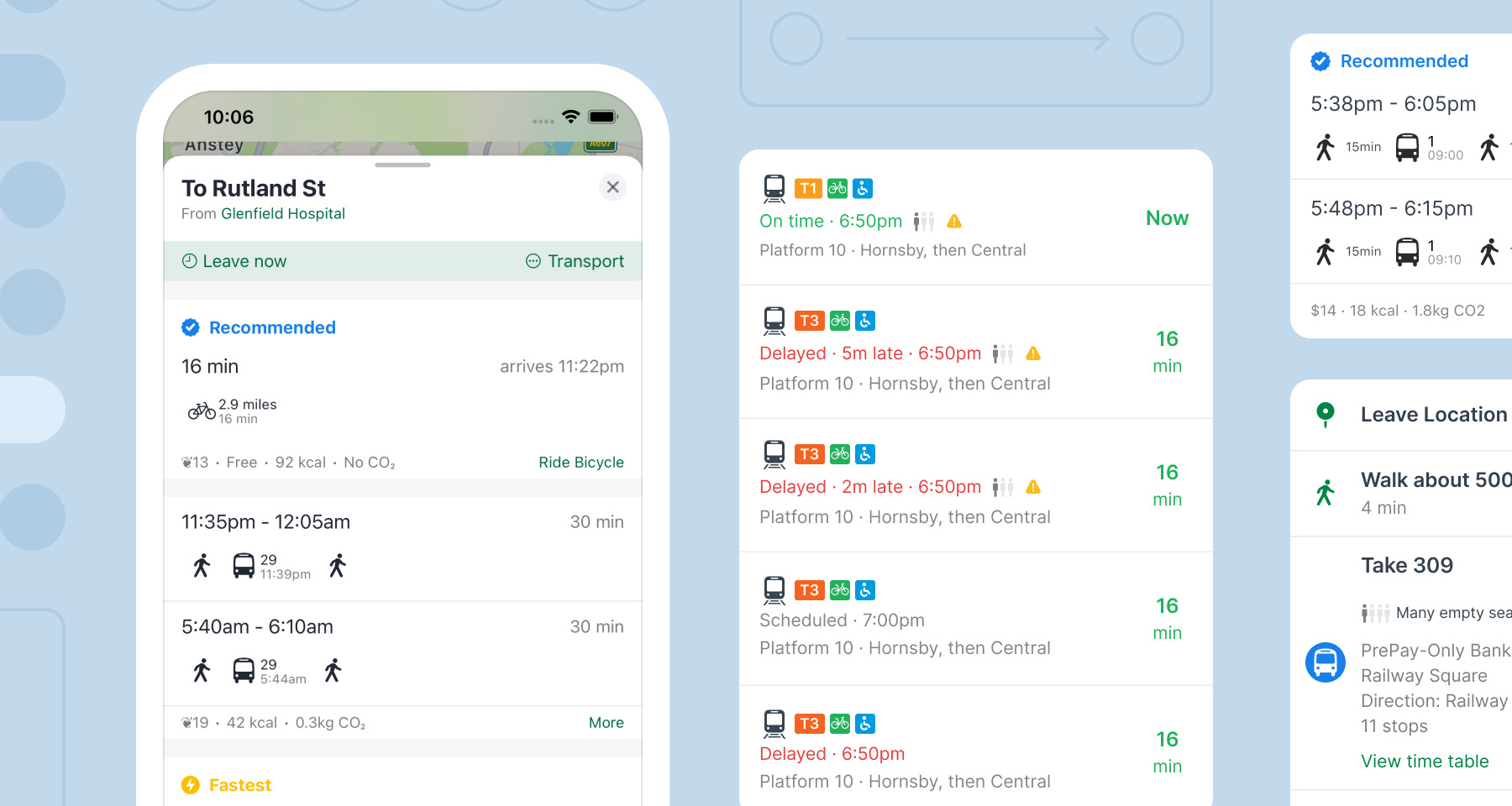Build smarter mobility in minutes#
TripGo's REST API delivers door-to-door itineraries that blend public transit, micromobility, rideshare, taxi and walking - complete with live departure times, fares, emissions and accessibility flags.
Why developers ship with TripGo:
- Free to start — no credit card, generous trial limits
- Ship fast — open-source SDKs for Swift, Kotlin and React with ready-made UI components
- Highly configurable — personalise results for your users' needs
- Top support — responsive team + custom data integration
Grab your key, call /routing.json, and see real journeys before your coffee's done.

1. Getting an API key#
You can try it out for free for as long as you like, as long as you stay below a threshold of API calls - no credit card required. For limits on the free tier and pricing, see the SkedGo website.
It may take up to 5 minutes for your key to be active.
Once you have an API key, send it along with every request as the X-TripGo-Key header.
2. Make a request#
Our API can do a lot more than just directions, but if that is what you are interested in, then try something like:
curl 'https://api.tripgo.com/v1/routing.json?from=(-33.859,151.207)&to=(-33.863,151.208)&departAfter=1532799914&modes=wa_wal&v=11&locale=en' -H 'Accept: application/json' --compressed -H "X-TripGo-Key: $tripgoKey" -gor
curl 'https://api.tripgo.com/v1/routing.json?from=(-33.859,151.207)&to=(-33.891,151.209)&modes=pt_pub&v=11&locale=en' -H 'Accept: application/json' --compressed -H "X-TripGo-Key: $tripgoKey" -gKeep in mind that this API is optimised to return a large number of trip results while maintaining small response sizes. This has a number of complications. Notably, to get a trip's segments you need to combine the segment references with the segment templates. This is explained further in the F.A.Q..
3. Integrating TripGo API with your App#
SkedGo offers SDKs for iOS, Android, and React, making it easy to integrate trip planning features into your application. Below you’ll find quick-start examples for each platform. Be sure to replace the placeholder API key with your own.
In your app delegate, provide your API key and start a new session:
import TripKit
func application(_ application: UIApplication, didFinishLaunchingWithOptions launchOptions: [UIApplication.LaunchOptionsKey: Any]?) -> Bool {
TripKit.apiKey = "MY_API_KEY"
TripKit.prepareForNewSession()
// ...
}import TripKitUI
let controller = TKUIHomeViewController()
present(controller, animated: true)class App : Application() {
override fun onCreate() {
super.onCreate()
TripKitConfigs.builder().context(this)
.debuggable(true)
.key { "YOUR_API_KEY" }
.build()
// Initialize TripKit here
}
}Installation
npm install tripkit-reactThen pass TripGo API key to the TKRoot component through the config object.
import React from 'react';
import { createRoot } from 'react-dom/client';
import { TKRoot, TKUITripPlanner } from 'tripkit-react';
const config = {
apiKey: <MY_TRIPGO_API_KEY>
};
const root = createRoot(document.getElementById('root'));
root.render(
<TKRoot config={config}>
<TKUITripPlanner />
</TKRoot>);4. Where to go from here?#
-
If you're an app developer, take a look at our open source TripKit SDKs for Swift (iOS, macOS, Linux), and Kotlin / Java (Android).
-
If you're a web developer, take a look at our React SDK, or check out our Leaflet Plugin (see Demo).
-
If you're a backend developer, dive into the API specs, which are available in OpenAPI (formerly Swagger) format.
-
If you know how to debug a web app, look at the network activity for our web app to get an idea of which API calls to use when. (Filter for "satapp".)